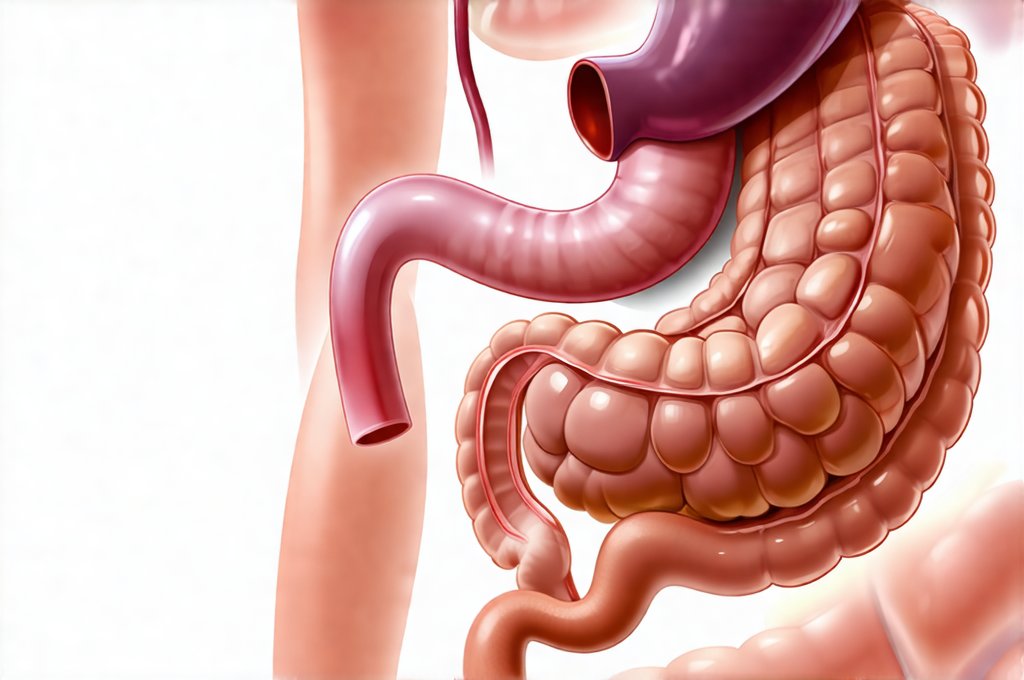Experiencing a digestive “scare” – whether it’s an unexpected diagnosis, alarming symptoms, or simply a period of intense discomfort – can be profoundly unsettling. Beyond the immediate physical experience, it often leaves individuals feeling vulnerable, anxious about their future health, and unsure where to turn for reliable information. It’s common to feel overwhelmed with questions: What does this mean? How did this happen? And perhaps most importantly, what can I do now to regain control of my digestive wellbeing and prevent a recurrence? Navigating the aftermath requires more than just following medical recommendations; it necessitates a proactive approach involving lifestyle adjustments, mindful self-assessment, and a commitment to long-term digestive health.
This isn’t about dwelling on fear or becoming hyper-focused on every bodily sensation. Instead, it’s about empowering yourself with knowledge and tools to understand your body better, identify potential triggers, and build resilience. A digestive health scare can actually serve as a catalyst for positive change – an opportunity to refine habits, prioritize self-care, and cultivate a deeper connection with your physical needs. It’s important to remember that digestive systems are complex, individualistic, and deeply interconnected with overall health; addressing concerns requires a holistic perspective rather than solely focusing on symptoms.
Understanding Your Diagnosis & Next Steps
A crucial first step after any digestive scare is thorough understanding of the diagnosis received from your healthcare provider. Don’t hesitate to ask questions – many questions – until you feel confident in your comprehension. This isn’t about second-guessing your doctor, but rather ensuring you have a clear grasp of what’s happening within your body and what the recommended course of action entails. Often, medical information is presented quickly or in complex terminology, making it difficult to fully absorb during an appointment. Write down questions beforehand, bring a notepad to appointments, and even consider asking if you can record the discussion (with consent) for later review.
Beyond understanding the specifics of your condition, clarify what ongoing monitoring or follow-up is required. Are there specific tests scheduled? What signs should prompt immediate medical attention? Understanding the long-term management plan will alleviate anxiety and empower you to proactively manage your health. Furthermore, seek clarity on potential lifestyle modifications recommended alongside (or instead of) medication. These could range from dietary changes to stress management techniques – all designed to support healing and prevent future issues. The goal is to become an active participant in your own care, rather than a passive recipient of treatment.
Finally, don’t underestimate the value of a second opinion. If you feel uncertain about the diagnosis or proposed treatment plan, seeking another professional perspective can provide reassurance and potentially reveal alternative approaches. This isn’t a sign of distrust; it’s simply exercising your right to informed decision-making regarding your health. Remember that healthcare professionals are generally very supportive of patients seeking additional opinions when they have concerns. If you have a family history, consider screening steps to stay ahead of potential issues.
Dietary Reassessment & Food Sensitivities
Often, dietary adjustments are central to managing digestive health issues and preventing future flares. However, this isn’t necessarily about adhering to restrictive diets or eliminating entire food groups without proper evaluation. It’s more about mindful reassessment of your eating habits and identifying potential triggers specific to you. Consider keeping a detailed food diary for several weeks, meticulously recording everything you eat and drink, along with any associated symptoms (bloating, gas, pain, changes in bowel movements). This can help pinpoint patterns and identify foods that consistently exacerbate your digestive distress.
- Begin by focusing on foundational dietary principles: prioritize whole, unprocessed foods; increase fiber intake gradually; stay well-hydrated; and limit processed sugars, excessive fats, and artificial additives.
- Explore the possibility of food sensitivities or intolerances. These are different from allergies (which involve an immune response) and can be more difficult to identify without testing or elimination diets. Common culprits include gluten, dairy, fructose, and certain FODMAPs (fermentable oligosaccharides, disaccharides, monosaccharides, and polyols).
- Consider working with a registered dietitian or nutritionist specializing in digestive health. They can help you develop a personalized meal plan that addresses your specific needs and sensitivities while ensuring adequate nutrient intake. Avoid self-diagnosing food intolerances without professional guidance, as restrictive diets can lead to nutritional deficiencies if not carefully managed. To understand what tests might be useful, explore how to build a comprehensive gut health profile.
Stress Management & Gut Health Connection
The profound link between stress and digestive health is often underestimated. The gut and brain are intimately connected via the “gut-brain axis,” a bidirectional communication network that influences both physical and mental wellbeing. Chronic stress can disrupt this delicate balance, leading to symptoms like bloating, constipation, diarrhea, and even exacerbating conditions such as Irritable Bowel Syndrome (IBS). Identifying and managing stressors is therefore essential for optimizing digestive health.
- Implement stress-reducing techniques into your daily routine: mindfulness meditation, deep breathing exercises, yoga, tai chi, or spending time in nature can all be incredibly beneficial.
- Prioritize self-care activities that bring you joy and relaxation: reading, listening to music, pursuing hobbies, or connecting with loved ones.
- Explore professional support if needed: therapy, counseling, or stress management workshops can provide valuable tools for coping with chronic stress and anxiety. Remember, seeking help is a sign of strength, not weakness. If symptoms are severe, remember how to recover from flare ups.
The Role of Gut Microbiome & Probiotics
The gut microbiome – the trillions of bacteria, fungi, viruses, and other microorganisms residing in your digestive tract – plays an incredibly important role in overall health, including digestion, immunity, and even mental wellbeing. An imbalance in the gut microbiome (dysbiosis) can contribute to various digestive issues and increase susceptibility to illness. While more research is needed, strategies to support a healthy gut microbiome are increasingly recognized as crucial for long-term digestive health.
- Focus on incorporating prebiotic foods into your diet: these are non-digestible fibers that feed beneficial bacteria in the gut. Examples include onions, garlic, leeks, asparagus, bananas, and oats.
- Consider probiotic supplementation: probiotics contain live microorganisms that can help restore balance to the gut microbiome. However, it’s important to choose a high-quality probiotic supplement with strains specifically targeted to your needs (consult with your healthcare provider for recommendations).
- Limit antibiotic use whenever possible: antibiotics can disrupt the gut microbiome, killing both harmful and beneficial bacteria. Use them only when absolutely necessary and under the guidance of your doctor. Promoting diversity within the gut microbiome is key – a varied diet rich in fiber and fermented foods (like yogurt, kefir, sauerkraut) can contribute to this. After a heavy meal, ease symptoms with simple adjustments. Furthermore, be aware of checkpoints during symptom progression.
It’s important to remember that healing from a digestive health scare isn’t linear. There will likely be ups and downs along the way. Be patient with yourself, celebrate small victories, and don’t hesitate to seek support when needed. By adopting a proactive and holistic approach – focusing on understanding your diagnosis, making mindful lifestyle adjustments, and prioritizing self-care – you can regain control of your digestive wellbeing and build a foundation for long-term health. How to prepare for tests can also reduce anxiety.


















